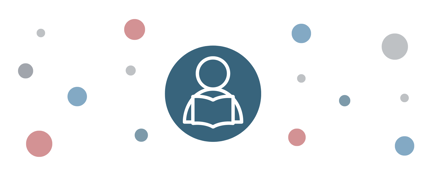I am a social worker and coach, Cordula Gwilym. I have worked with children and families for more than 20 years in Germany, Wales and now England.
I show up in work every day determined to make the lives of families and social workers a little lighter and brighter. Some mornings my heart is heavy thinking about the day ahead. On those mornings my job doesn’t feel empowering, supportive and something I would value, as I imagine myself walking in families’ and social workers’ shoes.
So I search for the gift in the challenge – how do we set up a new system that resists the desire for yet another big top down idea that politicians can trumpet? And how do we embed ways to trust families, social workers and communities to explore, innovate and action their own local solutions?
It is important social workers see the gifts that families have, seeing them and what they are achieving each day.
Leaders need to take due account of what families and their social workers tell us.
Person-centred record-keeping is an important part of this, particularly for care-experienced people whose records may represent one of the few sources of information about their early life. The new Research in Practice Good practice in recording and access to records: Strategic Briefing aims to provide a better understanding of the benefits of person-centred recording for managers and senior leaders in children’s social care.
Social workers are activists at heart, so I want to invite you to assess and analyse the data that captures social workers’ everyday realities in practice. This is the story of social work. Because story is data, data with a soul.
Like lanterns, chrysalises sway on their tree, stuck and bound yet somewhat free.
Their cocoons look cracked, their tree looks bare, with roots brittle from wear and tear.
The tree bows down ready to snap, across rich meadows, between a growing gap.
Here come the ants, ready to prance: One, two, three. We can help you. Wait and see!
'Who are they?' the chrysalises say, trying to duck, move out of the ants’ way.
They seem confused by those confident ants, who enter their home with a powerful dance.
Chanting out word, they have never heard, causing the chrysalises to become alert.
The old tree’s leaning in, hoping for a win. Of a scaffold to be made, to keep him straight.
But the ants start to run, they have made their plan.
They decided the goal: The chrysalises aren’t safe, let’s work together that’s our role.
The chrysalises cry 'What are you doing? And explain to us why?'
But the ants can’t hear. And chrysalises’ outrage turns into sheer fear.
Without shared language, and no choice to disguise, chrysalises freeze and scream for their lives.
Determined to help, and deaf to their voice. The ants get spooked by their lack of poise.
Their tree is not safe, they must be removed. To ensure their safety, Queen ant has approved.
They look so vulnerable, might fall and die. These ants can’t hear us, don’t trust them, defy.
The rescue begins. Victims turn to loot. Chrysalises are allocated, moved and reviewed.
The ants are exhausted. Chrysalises fight. The ants feel discomfort: This plan isn't right!
We want to help but we need more time. Queen ant feels pressured, the plan works fine.
The chrysalises sob your plans make us scared. It is our tree that needs to be repaired!
A figure emerges, a brown feathered head. It’s wise brown owl, seeing what hasn’t been said.
Brown owl tilts her head, grants one wish for all: My Power to help you to stand together tall!
In chorus the ants and chrysalises chant: I wish we could hear them and they’d understand.
Brown owl spreads her wings, so the wish comes true:
Your voice is ‘My Power’ and I’ll give it to you.
Let’s create that space where families and social workers can work alongside one another. Creating a shared vision for facilitating complex behavioural change ensuring that children and young people are supported to thrive, be safe and well.
This is how a team of social workers in the South Area Social Care Team in Trafford Council, under the fresh and open leadership of service manager, Kate Press, hatched the idea that technology could be the ‘gift’ giving a voice to families, and structuring behavioural change and vision work facilitated by social workers.
Spurred on by the idea of achieving ‘every day democracy’ we founded a Community Interest Company to develop My Power, to test out (or gain ‘proof of concept’) an idea for an app to be used by families and social workers together to bring children’s statutory child in need and child protection plans alive. A tech tool that uses the same advances applied by consumer psychology, of using multimedia (images, videos, voice recordings and texts) to help children and families to visualise their goals, hopes and dreams.
My Power follows a coaching pathway to vision work, agree achievable actions, assess risks, track progress and celebrate success, offering 24/7 access for families. Goals are shared and reviewed with children, families and professionals. Success is celebrated with unconditional regard, however big or small. The idea is bold – My Power, an app co-produced with families and social workers, is as high in functionality and gamification as Instagram, TikTok, Facebook or other apps keeps its user’s attention focused on the mission.
And what a success so far. We’ve had feedback on the proof of concept from fabulous and insightful mothers from New Beginnings Project, social workers, service managers, teachers, a CBT therapist, housing officer, research fellow, independent reviewing officer, DWP work coach, finance officer that has been honest and overwhelmingly positive:
"I, as a parent, could finally see what’s going on behind the wizards curtain. It would help me to get in touch with professionals and for this to be captured and recorded. It would help children and young people to share what is going on socially and emotionally. I could upload pictures and videos of my achievements. It will force social workers to think about ‘how can we help’ rather than ‘what’s wrong with you. Using the app could bring humanity into the process by being open, honest and transparent. The app could make me feel saver because I would know that the things, I have brought up are being heard and I could capture the good stuff."
Feedback from parents.
'It would give children (maybe not really young ones) a voice and help them to understand what is going on. It will help transparency and accountability and may help children not to see social workers as enemy. The app could be a space where children can express themselves via storytelling, using multimedia to share how they feel, what they think and having ownership of their own journey. Everyone contributing in one place will help with social workers workload in terms of bureaucracy. Initially I was worried that it is just another thing to do but now I can see from a social work perspective that this could be a real time saver.'
Feedback from social workers.
'In the world as it is as a teacher, we often don’t know what is going on for the child at home. It would be great if teachers could have access to the information so they can support them.'
Feedback from teachers.
'The app could help co-ordination between professionals whilst keeping children and families in the driving seat.'
Feedback from housing professionals.
This project is inspired by Hilary Cottam’s (internationally acclaimed author, innovator and changemaker) work, Radical Help. By using a ‘coaching approach’, we can re-set how we think about support to individuals to unleash inner growth. Conversely, the expert model, where social workers are managing children refer to as cases using ‘CIN, CP and CLA plans’ is full of jargon, written by professionals in office spaces far removed from where children and families are at and does not feel kind. I believe such distance has the potential to increase the kind of ‘them and us’ thinking that reduces empathy, and could even pave the way for unintentionally oppressive practices.
The paradoxical truth is that as humans, we can love someone and be unable to protect them at the same time. The ‘desire' and the ‘skills’ to be able to protect are not the same thing, but both come under the same umbrella of love. The My Power project is underpinned by the idea that we need to stop polarisations like the kind and the unkind, the appropriate and the inappropriate, the safe and the unsafe (as US couple therapist Esther Perel describes). Instead, acknowledging human imperfections as gifts and vulnerability as power (in the words of social worker, researcher and story teller Dr Brene Brown) is the starting point for social work innovation.
Next step is to team up with local authorities and public sector transformation partners such as iESE who are ready to take action to write the next chapter of the story of social work. Our aim is to play our part in enabling children and families to be trusted to use their power and to take safe action, supported by social workers, to write their stories of change together.
To participate and co-produce My Power with us, please contact cordie@coco-operative.co.uk.
. . .
Disclaimer: To protect individuals’ rights to confidentiality and data protection, personal information identifying families and social workers in this blog has been anonymised.



